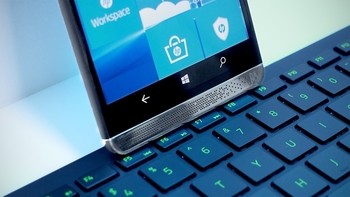
Desktop computers and laptops are good investments considering how we often use them for school, office, and leisure. Getting a new computer entails a lot of researching and canvassing in order to get the perfect fit for your needs. It is no surprise that deciding whether to fix it or replace it with a newer model also needs a thorough decision-making process.
Usually, the biggest factor on whether to ditch a computer or not is the cost of repair and replacement. Typically, if a desktop computer has a minimum price of $300 and a laptop screen repair cost at least $500, then a person will replace his computer or laptop if the repair will cost him/her $300 or higher. If you are thinking of replacing your computer, then here are a few pointers to keep in mind.
When to Know It is Time to Replace Your Computer
A desktop computer has an average life span of five years while the laptop has 3-4 years. By the latter half of their life span or after a few years beyond the period, a computer’s hardware tends to degrade or fail. This can be due to the fact that software gets upgraded every other year and so which makes it outperform the hardware.
If your computer is around 4 years old or older, has not received any significant upgrade, and is in desperate need of hardware upgrade, then your best bet is to get a new computer. It will be costlier to salvage that computer by repairing it than to get a new one completely.
What to Do Upon Replacing Your Computer
Install your programs. Hopefully, you still have a list of your old programs’ activation codes
After getting your new computer, it is imperative to install the programs you usually work with and need. Aside from the essentials such as Microsoft programs and other programs you often use, you also need to install programs that will help you access data on your new computer.
It will be very helpful if you have a list of your programs’ activation codes. If you do not have them, then you may need to purchase the programs again, which means that you will have to spend an extra amount of cash. Some programs can be quite expensive like the Microsoft Office set and programs for photo or video editing.
Move files from your old computer to the new one. But do it with caution.
When you move files from your old computer, be cautious about viruses, spywares, and malwares. Transferring files with viruses can slow down your new computer since viruses and malwares affect the performance of computers.
Therefore, instead of avoiding spending loads of money, you can actually end up losing more cash if you infect your new computer with virus.
Configure your printer and other devices with your new computer.
Before you get settled in with your new computer, you have to make sure that it is working perfectly with other devices you have already installed in your house.
This includes printers, scanners, and entertainment systems. If you get a computer which is not compatible with your other devices, you will need additional adaptors or software to make them work together which can also mean extra expenses for you.
A Few Pointers
Before replacing your computer, you may want to consider upgrading your hard drive or adding RAM if your problem is with the performance of the device. Do price research to ascertain if the option of replacing some parts instead of getting a new computer is cheaper.
And lastly, do not forget to take into consideration selling your old computer for part to help pay for a new one. There are a lot of online buy back sites that allow you to sell cell phone, tablets, laptops and computers. Most people overlook this, but it can also make a huge difference between repairing it or getting a new one.
